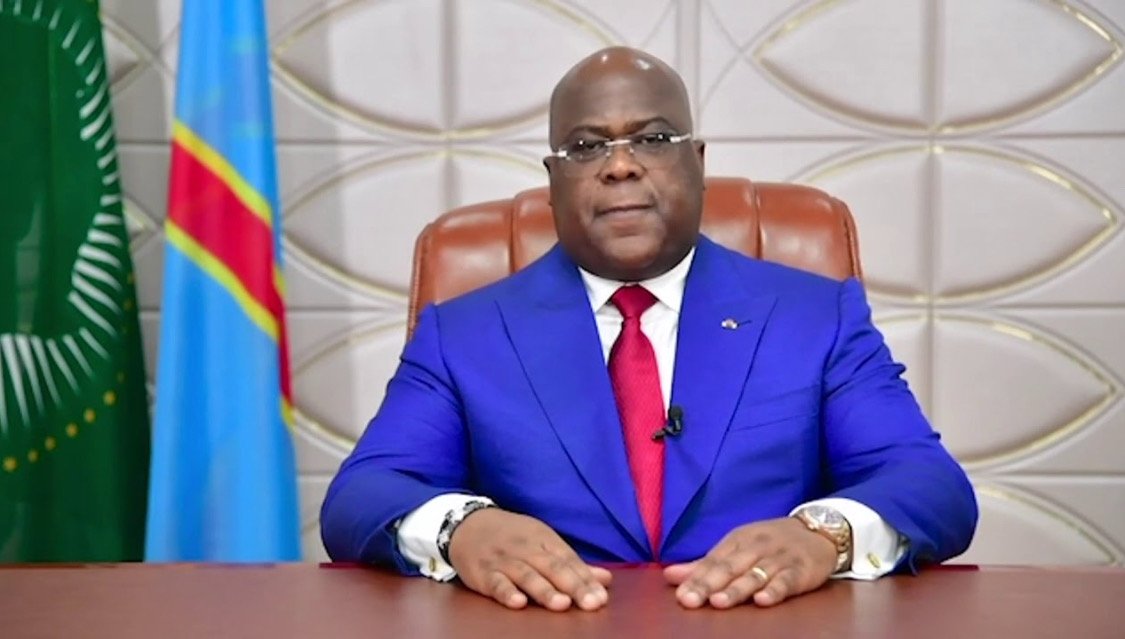Kisembo was killed in 2011 by the Congolese army after he tried to form a rebellion against the national armed forces of the country.
There has been confusion in Kinshasa after Democratic Republic of Congo President Félix Tshisekedi named a dead commander to a new role in the ongoing military reforms.
A presidential decree read out on national television (RTNC), had named Maj-Gen Floribert Kisembo, as the new head of military operations in North Equateur Province, in the north western region of the country.
His appointment, the announcement said, was effective Monday October 17.
Later, however, following public furore, the communication office of President Tshisekedi attributed the mistake to the news anchor’s accent.
“It’s a mispronunciation. The journalist pronounced Kisembo instead of Kisebwe,” the statement said, referring to General Isaac Kisebwe, who was also promoted.
No room for error
However, the presenter said the first, last and middle names of the late major-general, former commander of the operational zone in Maniema, eastern DRC, left no room that she had mispronounced the identity of the new commander.
Kisembo was killed by the Congolese army, according to the testimony of other army officers, after he tried to form a rebellion against the national armed forces of the country known by its French acronym FARDC (Forces armées de la république démocratique du Congo).
According to Col Fal Sikabwe, who was then commander of the FARDC operational zone in Ituri (eastern DRC), interviewed by Radio Okapi (affiliated to the UN mission in the DRC), “the troops of the 4th FARDC brigade attacked the maquis of Gen Floribert Kisembo Bahemuka in 2011.
The fighting took place in Lonyo, a village north of Bunia. The deserter general (Floribert Kisembo) was seriously injured in the fighting. He died on May 1, 2011.
Gen Floribert Kisembo Bahemuka, former leader of the UPC militia and dissident of Thomas Lubanga, had joined the FARDC in January 2005.
Second controversy
This is the second controversy raised by President Tshisekedi’s decrees. Earlier, he had promoted Gen John Tshibangu, who had deserted the army after he had endorsed the victory of Étienne Tshisekedi (the father of the current president Félix Tshisekedi) in the 2011 presidential election over Joseph Kabila. In that election, Kabila won but his win was contested by opposition groups.
John Tshibangu, 52, who was promoted to the rank of brigadier-general, was appointed commander of the 21st military region whose headquarters is based in Mbuji-Mayi (Kasai Oriental), in central DRC. He served in the former Zairean Armed Forces, trained in Israel before joining the Service d’action et des renseignements militaires (SARM), an elite unit, during the time of former president Mobutu Sese Seko.
He had a brief stint in the rebellion in the early 2000s. But thanks to the 2003 peace agreement, he re-joined the Congolese army and was even promoted to chief of staff of the 4th military region in Kananga, in the centre of the DRC.
Formed rebel group
In August 2012, then a colonel, Tshibangu defected from the ranks of the FARDC and claimed Etienne Tshisekedi had been rigged out of the polls. He created the APCCD (Armée du peuple congolais pour le changement et la démocratie), a rebel group. He was hunted down for several weeks by elements of the FARDC ‘special forces’ without success.
The military court prosecuted him for undermining state security, participation in an insurrectional movement, rebellion and desertion. After several years, he was finally arrested in Tanzania at the end of 2018, after he had threatened to overthrow President Joseph Kabila.
He appeared in a video, dressed in military fatigues and surrounded by some soldiers. He was extradited to Kinshasa from Tanzania where he was detained before being freed briefly. President Félix Tshisekedi would pardon him shortly after coming to power.
 The African History Truly African
The African History Truly African

